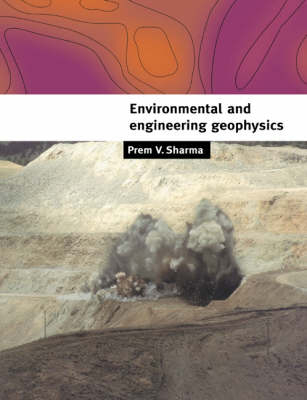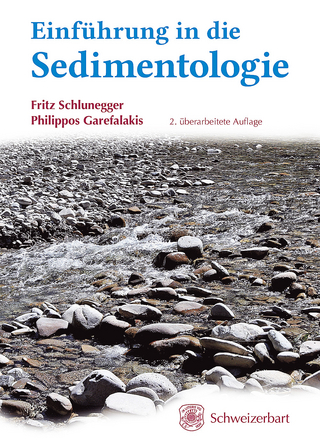
Environmental and Engineering Geophysics
Seiten
1997
Cambridge University Press (Verlag)
978-0-521-57632-1 (ISBN)
Cambridge University Press (Verlag)
978-0-521-57632-1 (ISBN)
Comprehensively describes all of the principal geophysical surveying techniques for a wide range of environmental and engineering problems. A valuable textbook for advanced undergraduates and postgraduates in environmental and engineering geophysics, and a reference work for professional earth scientists, environmental and engineering consultants, engineers and town planners.
Geophysical imaging methods provide solutions to a wide range of environmental and engineering problems: protection of soil and groundwater from contamination, disposal of chemical and nuclear waste, geotechnical site testing, landslide and ground subsidence hazard detection, location of archaeological artefacts. This book comprehensively describes the theory, data acquisition and interpretation of all of the principal techniques of geophysical surveying: gravity, magnetic, seismic, self-potential, resistivity, induced polarization, electromagnetic, ground-probing radar, radioactivity, geothermal, and geophysical borehole logging. A final chapter is devoted to inversion theory and tomography. Each chapter is supported by a large number of richly illustrated case histories. This book will prove to be a valuable course-book for advanced undergraduates and postgraduates in environmental and applied geophysics, a supplementary course-book for students of geology, engineering geophysics, civil and mining engineering, and a reference work for professional earth scientists, engineers and town planners.
Geophysical imaging methods provide solutions to a wide range of environmental and engineering problems: protection of soil and groundwater from contamination, disposal of chemical and nuclear waste, geotechnical site testing, landslide and ground subsidence hazard detection, location of archaeological artefacts. This book comprehensively describes the theory, data acquisition and interpretation of all of the principal techniques of geophysical surveying: gravity, magnetic, seismic, self-potential, resistivity, induced polarization, electromagnetic, ground-probing radar, radioactivity, geothermal, and geophysical borehole logging. A final chapter is devoted to inversion theory and tomography. Each chapter is supported by a large number of richly illustrated case histories. This book will prove to be a valuable course-book for advanced undergraduates and postgraduates in environmental and applied geophysics, a supplementary course-book for students of geology, engineering geophysics, civil and mining engineering, and a reference work for professional earth scientists, engineers and town planners.
1. Introductory observations; 2. Gravity surveying; 3. Magnetic surveying; 4. Seismic surveys; 5. Self-potential surveying; 6. Resistivity and induced polarization surveys; 7. Electromagnetic surveys; 8. Ground-probing radar; 9. Radioactivity surveys; 10. Geothermal surveying; 11. Geophysical borehole logging; 12. Inversion theory and tomography; Appendix A. Analytical continuation of potential fields; Appendix B. Gravity and magnetic attraction of finite vertical or horizontal cylinder; Appendix C. Magnetic anomaly of a right rectangular prism with an arbitrary direction of magnetization vector; Appendix D. Poynting vector resistivity and the Bostick inversion; Index.
| Erscheint lt. Verlag | 20.11.1997 |
|---|---|
| Zusatzinfo | 21 Tables, unspecified; 5 Halftones, unspecified; 279 Line drawings, unspecified |
| Verlagsort | Cambridge |
| Sprache | englisch |
| Maße | 188 x 246 mm |
| Gewicht | 890 g |
| Themenwelt | Naturwissenschaften ► Geowissenschaften ► Geologie |
| Naturwissenschaften ► Geowissenschaften ► Geophysik | |
| ISBN-10 | 0-521-57632-6 / 0521576326 |
| ISBN-13 | 978-0-521-57632-1 / 9780521576321 |
| Zustand | Neuware |
| Haben Sie eine Frage zum Produkt? |
Mehr entdecken
aus dem Bereich
aus dem Bereich


